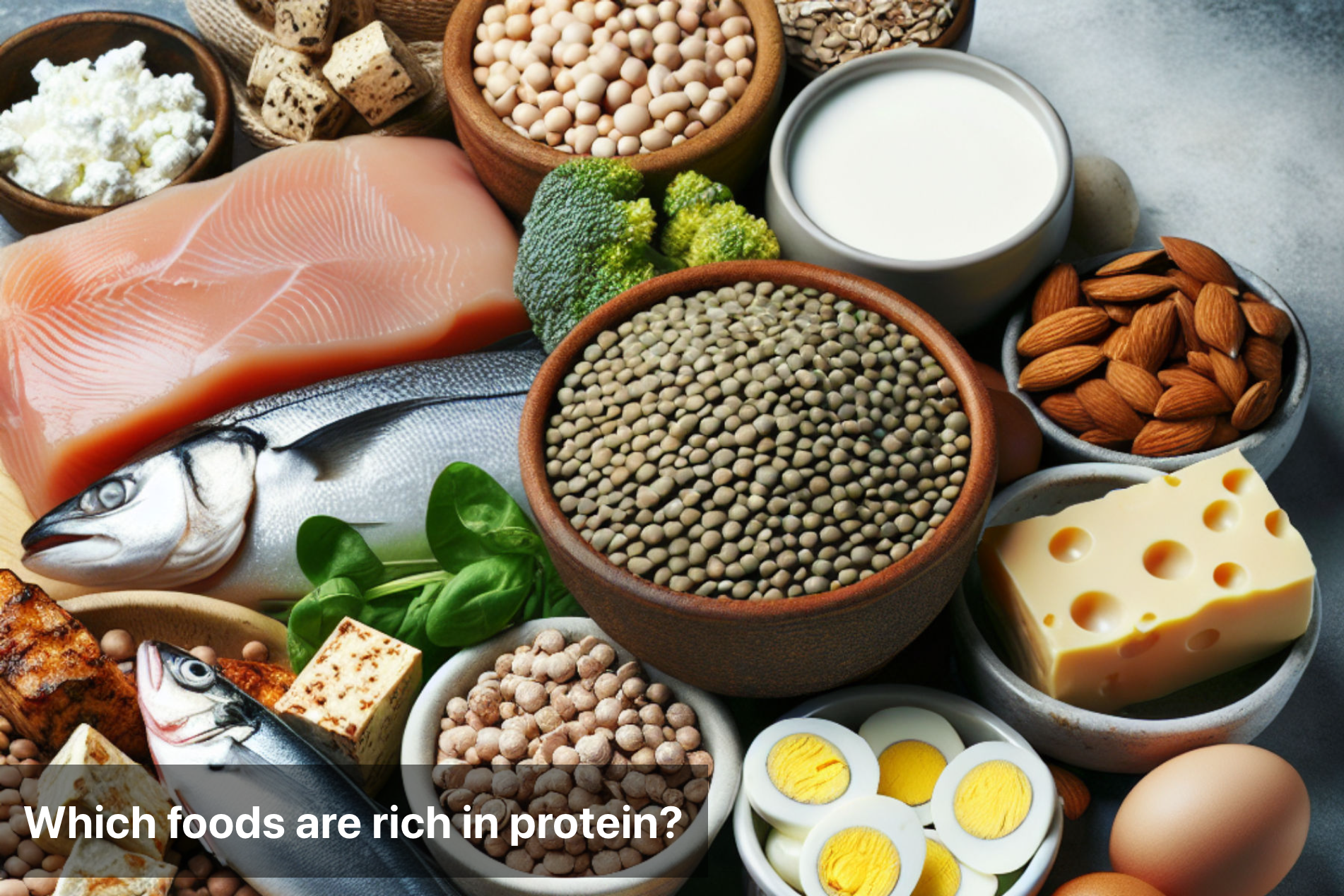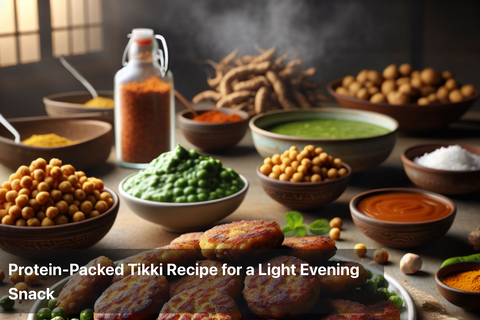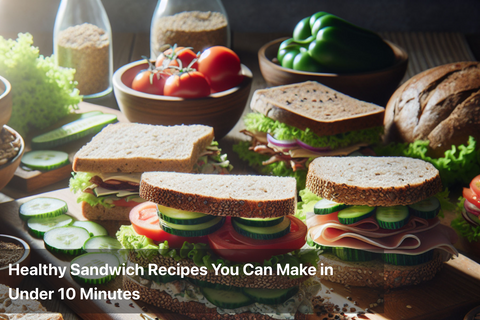
Which foods are rich in protein?
Protein is a fundamental component of a healthy diet, playing a crucial role in various bodily functions. It serves as the building block for muscles, tissues, enzymes, and hormones, highlighting its significance in maintaining overall health. Consuming foods rich in protein is essential to support muscle growth, repair tissues, and boost metabolism.
Two notable examples of protein-rich animal-based foods are lean chicken breast and eggs. Lean chicken breast is a low-fat, high-protein source that aids in muscle development, while eggs provide essential amino acids crucial for various bodily functions. Incorporating these foods into your diet can help meet your protein requirements effectively.
In addition to animal-based sources, plant-based foods like quinoa and lentils are excellent alternatives rich in protein. Quinoa is a complete protein, offering all nine essential amino acids, making it a valuable addition to vegetarian diets. Similarly, lentils are a versatile legume packed with protein, fiber, and various nutrients essential for overall well-being.
By understanding the significance of protein-rich foods and incorporating them into your diet, you can promote muscle health, support weight management, and improve overall vitality. A balanced diet including diverse protein sources ensures you meet your nutritional needs effectively.

Animal-based sources of protein
Food |
Serving Size |
Protein |
Calories |
Carbs |
Fat |
Fiber |
|---|---|---|---|---|---|---|
Chicken Breast |
100g |
31g |
165 |
0g |
3.6g |
0g |
Tuna |
100g |
30g |
132 |
0g |
1.3g |
0g |
Turkey Breast |
100g |
29g |
135 |
0g |
1g |
0g |
Lean Beef |
100g |
26g |
250 |
0g |
15g |
0g |
Salmon |
100g |
25g |
206 |
0g |
13g |
0g |
Lamb |
100g |
25g |
294 |
0g |
21g |
0g |
Cottage Cheese |
100g |
11g |
98 |
3.4g |
4.3g |
0g |
Shrimp |
100g |
24g |
99 |
0.2g |
0.3g |
0g |
Cheddar Cheese |
100g |
25g |
403 |
1.3g |
33g |
0g |
Greek Yogurt |
170g (6 oz) |
10g |
100 |
6g |
0.7g |
0g |
Plant-based sources of protein
Food |
Serving Size |
Protein |
Calories |
Carbs |
Fat |
Fiber |
|---|---|---|---|---|---|---|
Lentils |
100g (cooked) |
9g |
116 |
20g |
0.4g |
8g |
Chickpeas |
100g (cooked) |
9g |
164 |
27g |
2.6g |
8g |
Quinoa |
100g (cooked) |
4.1g |
120 |
21g |
1.9g |
2.8g |
Tofu |
100g |
8g |
76 |
1.9g |
4.8g |
0.3g |
Edamame |
100g |
11g |
121 |
8g |
5g |
5g |
Chia Seeds |
28g (1 oz) |
4.7g |
138 |
12g |
8.6g |
10g |
Black Beans |
100g (cooked) |
9g |
132 |
23g |
0.5g |
8g |
Hemp Seeds |
28g (1 oz) |
9.5g |
161 |
3g |
12.3g |
1.2g |
Almonds |
28g (1 oz) |
6g |
164 |
6g |
14g |
3.5g |
Pumpkin Seeds |
28g (1 oz) |
7g |
151 |
5g |
13g |
1.1g |
Other sources of protein
Quinoa: A Protein Powerhouse
When it comes to unconventional yet highly nutritious protein sources, quinoa is a standout option. This ancient grain is not only rich in protein but also boasts a complete amino acid profile, making it an excellent choice for vegetarians and vegans looking to increase their protein intake. Just a single cup of cooked quinoa contains around 8 grams of quality protein, making it a versatile ingredient for various dishes.
Lentils: The Protein-Packed Legume
Lentils, a humble legume, are another fantastic source of plant-based protein. Packed with nutrients, including protein, fiber, and essential minerals, lentils offer a substantial amount of protein per serving. They are not only affordable and easy to cook but also incredibly versatile, making them a perfect addition to soups, salads, and curries. Incorporating lentils into your diet can significantly boost your protein intake in a healthy and sustainable way.

Discover the Best Sources of Protein for a Balanced Diet
Protein is a vital component of a balanced diet as it plays a crucial role in various functions of the body, including muscle growth and repair, immune function, and hormone production. Incorporating protein-rich foods into your daily meals is essential to maintain overall health and well-being. Animal-based sources such as lean meats, fish, eggs, and dairy products are excellent options that provide complete protein, essential amino acids, and various nutrients that support bodily functions.
On the other hand, plant-based sources like legumes, nuts, seeds, and tofu offer a great alternative for individuals following a vegetarian or vegan diet. These options not only provide protein but also offer fiber, vitamins, and minerals that contribute to a well-rounded diet. Exploring diverse sources of protein ensures that you meet your daily protein requirements while enjoying a variety of flavors and textures in your meals.
Additionally, incorporating less conventional but protein-rich foods like quinoa, lentils, and tofu can add diversity to your diet and provide essential nutrients. These alternatives offer quality protein along with other beneficial compounds that promote overall health. By diversifying your protein sources, you can create a nutritionally balanced diet that supports your fitness goals and overall well-being. Remember, a balanced and varied diet is key to meeting your protein needs and optimizing your health.
This Blog post is an initiative by Lo! Foods, to provide accurate and Nutritionist / Doctor approved information related to Health. Lo! Foods is India's leading brand for Everyday Functional Foods. Foods designed for specific Health conditions or Needs. Lo! Foods also runs India's largest range of Low Carb Healthy Cloud Kitchens, under the brand names of Lo!, ProteinChef, ATH (All Things Healthy) and DiabeSmart.















Leave a comment
Your email address will not be published.